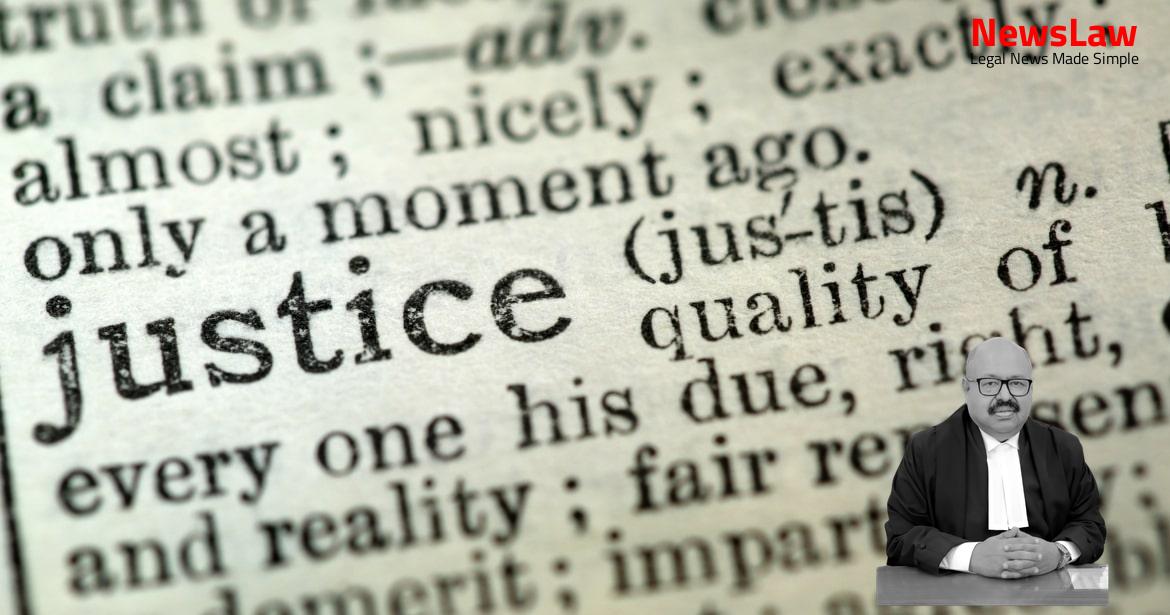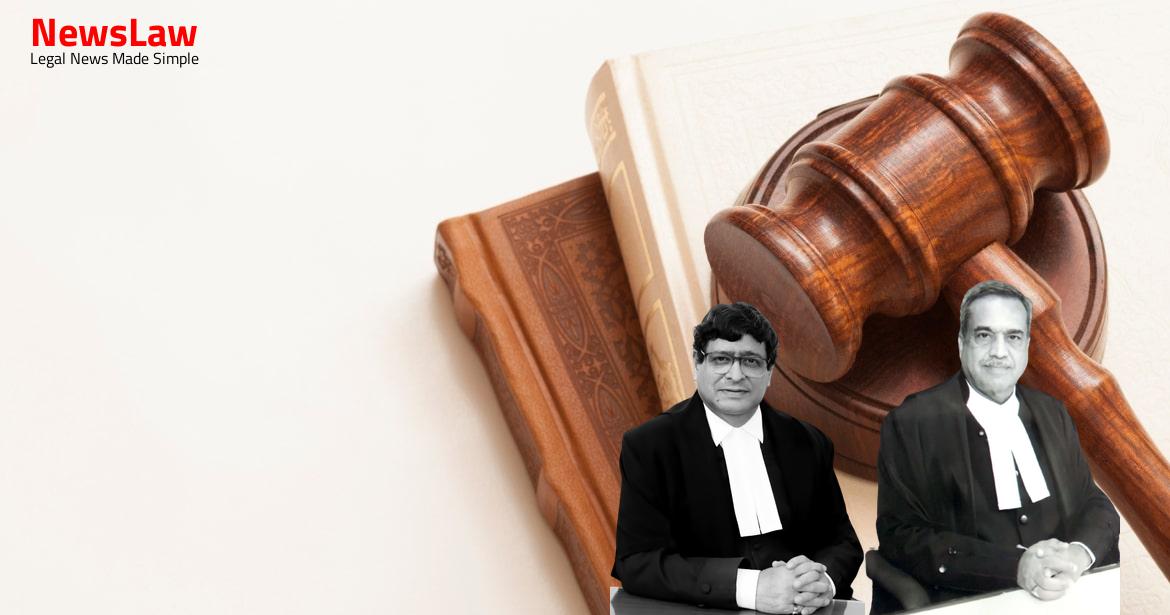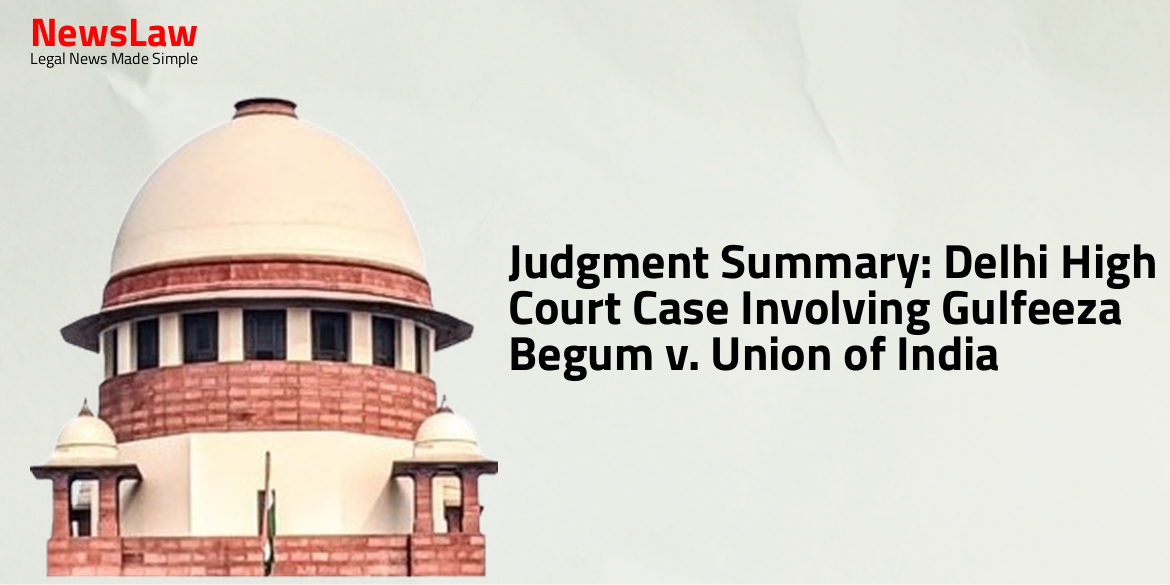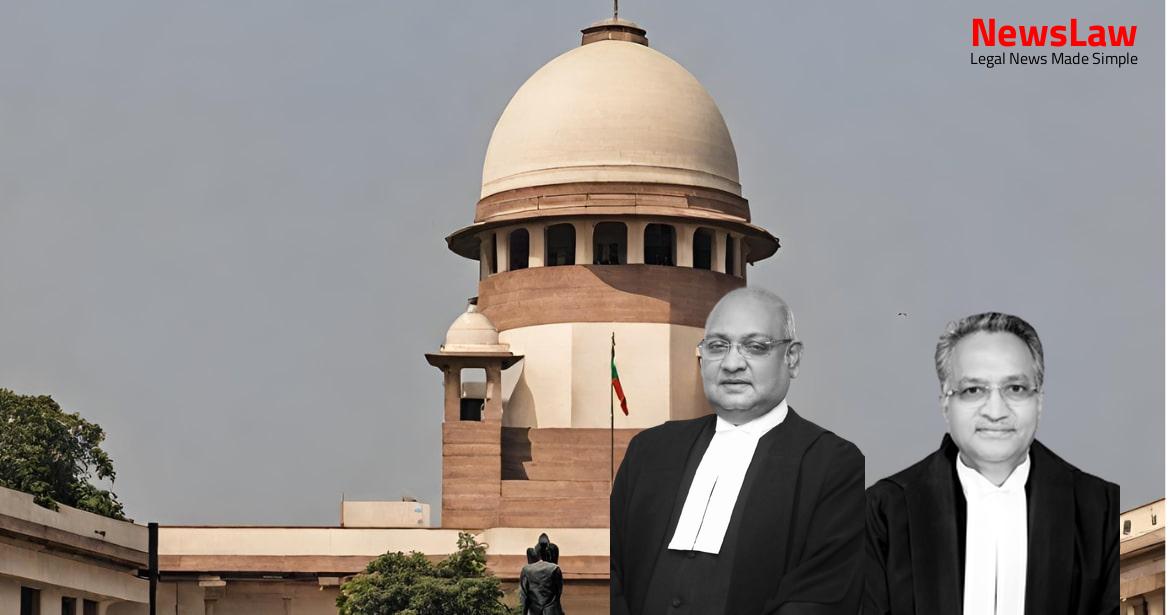The High Court of Judicature at Madras recently rendered a significant legal analysis on the voidance of a registered sale deed through unilateral cancellation. The court’s decision emphasized the need for proper adjudication of rights by a competent civil court, especially in cases involving property transfers. Delve into the complexities of this legal issue to understand the implications for parties involved in similar disputes.
Facts
- The High Court of Judicature at Madras allowed the intra-court appeal filed by respondent Nos.1 to 5 by setting aside the order of the learned single Judge in W.P. No.6329 of 2009.
- The original owners of the land, respondent Nos.1 to 4, executed a registered power of attorney in favor of respondent no.7 for S.F. No.246/1 of Kalapatti Village.
- The appeal is filed in civil court.
- Respondent nos.1 to 4 filed a civil suit to declare the sale deed dated 09.03.2005 as illegal, void, and non est.
- Appellants claim they purchased land from respondent nos. 1 to 4 through a registered sale deed executed by Power of Attorney.
- Cancellation deed was prepared on 09.03.2005 and registered on 20.09.2007 by respondent nos. 1 to 4.
- Writ petition was filed by the appellants in March 2009 challenging the cancellation deed.
- Learned Single Judge allowed the writ petition citing that cancellation deed couldn’t be registered without appellant’s consent.
- Respondent nos. 1 to 5 appealed against the Single Judge’s order and the intra-court appeal was allowed, setting aside the Single Judge’s order.
- High Court held that the civil suit filed by respondent nos. 1 to 4 for declaration and cancellation of the sale deed was valid.
- Appellants filed Writ Petition No. 6329 of 2009 alleging interference with possession.
Also Read: Challenging Legal Analysis in 1989 Scheme Eligibility Case
Arguments
- The High Court relied on the judgment in the case of Satya Pal Anand v. State of Madhya Pradesh to allow the appeal, but it is noted that the present case is distinguishable on facts.
- Unilateral cancellation of a property transferred by a registered sale deed is deemed void, non est, and against public policy.
- Learned senior counsel Sri K.V. Viswanathan contended that once a property is transferred by a registered sale deed, unilateral cancellation of such deed is void.
- Referring to the judgment in the case of Thota Ganga Laxmi & Anr. v. Government of Andhra Pradesh & Ors., it was argued that registration of such unilateral cancellation deeds poses a risk of causing prejudice and injustice to bona fide purchasers.
- The respondent’s argument is based on the judgment in the case of Satya Pal Anand.
- It is contended that absence of a party to the extinguishment deed cannot be considered fraudulent per se.
- The respondent argues that the judgment in the case of Thota Ganga Laxmi is not applicable to the current case as it was specific to the State of Andhra Pradesh.
- Despite the cancellation and filing of the suit by respondent nos.1 to 4, the appellants have already filed their written statement and are actively contesting the matter.
- Respondent no.8 is presented as a subsequent bona fide purchaser of 0.25 cents of the disputed land.
Also Read: Challenging Conviction Based on Confessional Statements
Analysis
- The judgement discusses a case related to allotment of a site by a cooperative society where the original allottee breached the condition by not constructing a house within the given time frame.
- The cooperative society then cancelled the allotment and executed an extinguishment deed, which was subject to adjudication of rights by a competent civil court.
- The original purchaser’s attempt to cancel the cancellation deed was rejected by the Sub-registrar citing that a dispute was already pending in the Civil Court and the authority lacked jurisdiction to cancel a registered document.
- It is noted that respondent nos.1 to 4 have filed a civil suit, O.S.No.142 of 2008, seeking a declaration that a sale deed favoring the appellants is null and void after registering the cancellation deed.
- The appellants have already filed a written statement in response to the suit.
- The rights of the parties will be subject to adjudication in Civil Suit in O.S. No.142 of 2008.
- It is not necessary to delve into the various contentions advanced by the learned counsels.
- The appellants have already filed a written statement in the civil suit and are contesting the same.
- The validity and effect of the cancellation deed will not be examined at this stage.
- Registration of the document is subject to adjudication of rights by the competent civil court.
- Had the appellants not filed a written statement, the situation would have been different.
Also Read: Interpretation of Market Fee Levy under Karnataka Agricultural Produce Marketing Act
Decision
- Rights of the parties regarding the land will be governed by the judgment in pending suit in O.S. No.142 of 2008
- The civil suit shall be decided on its own merits
- A portion of the land has been transferred to respondent no.8 after the registration of cancellation deed
- The validity of the cancellation deed will not be examined as the suit is pending on the same subject
- Parties directed to maintain status quo with regard to possession until the suit is disposed of
- The suit in O.S. No.142 of 2008 is to be disposed of expeditiously, preferably within a year
Case Title: AMUDHAVALI Vs. P.RUKUMANI (2021 INSC 832)
Case Number: C.A. No.-007464-007464 / 2021



